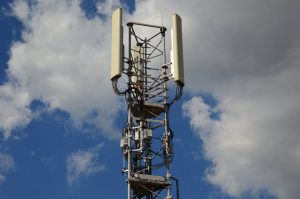
The Future of Satellites: Revolutionizing Global Connectivity
The future of satellites holds immense potential for revolutionizing global connectivity, enabling faster and more reliable communication networks, and transforming various industries. With advancements in technology and increasing demand for satellite-based services, the satellite industry is poised for significant growth and innovation. In this article, we will explore the future of satellites, their applications, and the impact they will have on global connectivity.
Satellites have been a crucial part of modern communication systems, providing services such as television broadcasting, navigation, and remote sensing. However, the future of satellites goes beyond these traditional applications. Next-generation satellites will be designed to provide high-speed internet services, enable the Internet of Things (IoT), and support emerging technologies like 5G and 6G. These satellites will be equipped with advanced technologies such as artificial intelligence, machine learning, and edge computing, allowing them to process vast amounts of data in real-time.
One of the most significant applications of future satellites will be in providing global connectivity. With the increasing demand for high-speed internet services, satellites will play a crucial role in bridging the digital divide and connecting remote and underserved communities. Companies like SpaceX, Amazon, and OneWeb are already working on launching constellations of satellites to provide global internet coverage. These satellite constellations will consist of thousands of small satellites operating in low Earth orbit, providing high-speed internet services to even the most remote areas.
Another significant application of future satellites will be in the IoT. Satellites will enable the connection of billions of devices, from smart home appliances to industrial sensors, and provide real-time data analytics and insights. This will have a significant impact on various industries such as agriculture, transportation, and healthcare, enabling them to make data-driven decisions and improve their operations.
In addition to these applications, future satellites will also play a crucial role in supporting emerging technologies like 5G and 6G. Satellites will provide the necessary infrastructure for these technologies, enabling the widespread adoption of high-speed wireless networks and transforming the way we communicate and interact with each other. With the increasing demand for high-speed wireless networks, satellites will be essential in providing the necessary capacity and coverage to support these networks.
Furthermore, future satellites will also have a significant impact on the environment. Satellites will enable the monitoring of climate change, deforestation, and ocean pollution, providing vital data and insights to support sustainability efforts. Satellites will also enable the tracking of weather patterns, predicting natural disasters, and providing early warnings to support disaster response and recovery efforts.
In conclusion, the future of satellites holds immense potential for revolutionizing global connectivity, enabling faster and more reliable communication networks, and transforming various industries. With advancements in technology and increasing demand for satellite-based services, the satellite industry is poised for significant growth and innovation. As we move forward, it is essential to invest in the development of next-generation satellites and supporting infrastructure to unlock the full potential of satellite technology and create a more connected and sustainable world.
The development of future satellites will require significant investment in research and development, as well as collaboration between governments, industries, and academia. It will also require the development of new technologies, such as advanced propulsion systems, power generation, and communication systems. However, the potential benefits of future satellites far outweigh the challenges, and it is essential to continue investing in the development of this technology to unlock its full potential.
As the satellite industry continues to evolve, we can expect to see significant advancements in the development of next-generation satellites. These satellites will be designed to provide high-speed internet services, enable the IoT, and support emerging technologies like 5G and 6G. They will also be equipped with advanced technologies such as artificial intelligence, machine learning, and edge computing, allowing them to process vast amounts of data in real-time.
In the near future, we can expect to see the launch of several satellite constellations, each consisting of thousands of small satellites operating in low Earth orbit. These constellations will provide global internet coverage, enabling the connection of remote and underserved communities. They will also enable the IoT, providing real-time data analytics and insights to support various industries.
In addition to these developments, we can also expect to see significant advancements in the field of satellite manufacturing. New technologies, such as 3D printing and additive manufacturing, will enable the production of satellites at a lower cost and with increased efficiency. This will make it possible to launch more satellites, providing greater coverage and capacity to support the growing demand for satellite-based services.
In conclusion, the future of satellites is exciting and holds immense potential for revolutionizing global connectivity and transforming various industries. With advancements in technology and increasing demand for satellite-based services, the satellite industry is poised for significant growth and innovation. As we move forward, it is essential to continue investing in the development of next-generation satellites and supporting infrastructure to unlock the full potential of satellite technology and create a more connected and sustainable world.




